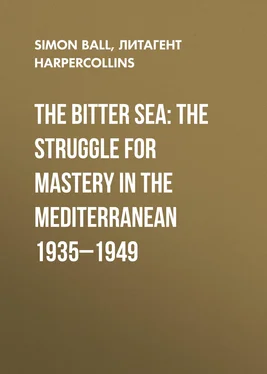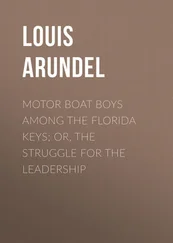To make matters worse, the British could not help crowing over their victories. It was not their fault that they were useless, Churchill told his Italian listeners. The disasters they were now enduring were the responsibility of one man, the Duce. 3 He had ‘ranged the Italian people in deadly struggle against the British empire’. He alone had created defeat; if he were to be removed then the Italians would be absolved both of crime and cowardice. ‘There stands’, they should cry, ‘the criminal who has brought the deed of folly on our land.’ The message was in a sense well judged–there were plenty in Mussolini’s own intimate circle who heard Churchill and agreed with him. 4 The cost of such barbs was nevertheless high. For years afterwards Churchill’s words would provide the constant alibi for Fascists and their friends. Yet at the time there were no Italians with either the will or the power to overthrow Mussolini. The threat itself put Mussolini on his guard. It also resonated with Churchill’s avid listeners in Germany. The idea that Mussolini must be ‘saved’ from the Italians entered the Führer’s table talk. 5
He had, Hitler told his courtiers at Berchtesgaden, reconsidered the situation. The previous month he had ordered the Luftwaffe to teach the Mediterranean Fleet a lesson. 6 At the beginning of January 1941 the first Stukas had touched down in western Sicily. As Hitler addressed his generals they were going into action for the first time. The Mediterranean Fleet played into German hands with a display of the very arrogance that Hitler was determined to humble. The victor of Taranto, Illustrious, was sent through the Sicilian Narrows so that it might cover a convoy bringing crated fighters from Gibraltar to Malta. Many officers had a bad feeling about the operation, but Cunningham waved aside their objections. Illustrious was the talisman of the fleet, everyone felt better when she was around. She proved, however, the perfect target for German bombs. The Italians, too, played their part. 7 Even though they had but a few days to prepare, the two air forces choreographed a complex aerial ruse. Italian torpedo-bombers flew a decoy mission to draw off the Illustrious ’s fighters. Once she was denuded of protection the dive-bombers attacked. ‘The dive bombing attacks’, Cunningham ruefully admitted, were most efficiently performed and came as a most unpleasant surprise.’ The carrier was hit six times. The only consolation for the British was that there was no killer blow. The crippled ship was able to get into Malta harbour without being sunk. She brought with her the first concentrated German air raids over the island, as for days afterwards the Stuka crews tried to finish off their prey. As Cunningham said, a ‘potent new factor in Mediterranean war’ had arrived. No one doubted what had happened. Large British ships had been chased from the waters surrounding Sicily and Malta. 8 The passage of even smaller ships had become deeply problematic. 9
The battle prompted another Mussolinian mood swing. This example of the two air forces working in such close harmony had cheered him to the extent that he was looking forward to his own visit to Berchtesgaden. 10 He would have been less cheerful if he could have heard what those already there were saying. The Italians had shown ‘matchless amateurism’ according to Hitler. 11 The war in Libya was a piddling and unimportant affair, but the Führer took seriously Churchill’s words. Italy must be saved from itself. A small armoured force sent to Tripoli should do the trick. 12 The Italo-German effort on Sicily, the offer of forces for Tripoli, and Hitler’s promise that the pesky Greeks would be humbled come the spring yielded a surprisingly cordial meeting of the two dictators. They toasted the ‘absolute solidarity between the countries of the Axis’. It was time for them to ‘march together’. Of course, many at the time and since doubted this togetherness. Italian diplomats warned that the Germans intended to displace Italian power rather than come to its aid. The contrast between the confident swagger of the German generals around Hitler and the cowed mien of Italian officers, small of stature and sporting hair dyed jet black, was palpable. Mussolini had come to Hitler as a supplicant and had left a client. Nevertheless, a deal of sorts was done that allowed for cooperation against mutual enemies over the next few months. 13
Churchill might boom his voice in the Mediterranean, but in the inner councils of the British war machine he complained that no one seemed inclined to do much to counter this new threat. A formal decision was made in London to aid Greece against a new Italo-German invasion. The view from Alexandria, however, was that the Sicilian Narrows were now closed and that opening them, whilst defending Malta, should have the highest priority. The view from Cairo was that if any aggressive military operations were to take place in the Mediterranean–other than in Libya–they would best be directed against ill-defended small Italian islands in the far east of the Sea. No one appeared to be responding to the Prime Minister’s ideas and demands. Each of the military commanders, Wavell, Cunningham and Longmore, had become used to the semi-independence granted by difficult communications. There was no instrument on the spot capable of enforcing Churchill’s will. 14

There was, as it happened, a member of Churchill’s government travelling around the Mediterranean at the very moment of decision. But he was a man whom one would least like to see hove over the horizon in such circumstances. ‘I adore Cairo,’ Chips Channon wrote upon his arrival, ‘it is everything I like, easy, elegant, pleasure-loving, trivial, worldly; me, in fact.’ 15 The private secretary to the under-secretary of state was at the very bottom of the Foreign Office food chain. He had arrived in Cairo on a ‘secret’ mission in which no one in London had any faith. Chips’s dearest friend, from their idyllic days as undergraduates, was Prince Paul of Yugoslavia. Since Mussolini had arranged the assassination of King Alexander in 1934, Paul had acted as Regent to his young nephew Peter. Mussolini had long wished to predate the Yugoslavians. As Hitler’s interest in Greece rose, their role became pivotal. The Yugoslavs might join the Greeks as victims. Just as likely they could join with the Germans against the Greeks in return for territorial gain and protection from the Italians. 16 The lure of a Serbo-German alliance warred with Paul’s natural Anglophilia.
In his moment of crisis Paul called out for Chips, and Chips came. As Hitler plotted in the Berchtesgaden, Chips crossed the Mediterranean from Cairo to Athens. He dropped in on another dear friend, King George of Greece. Paul and George, royal cousins, had last met at Chips’s opulent house in Belgrave Square. Now they phoned each other each night, mainly it seemed to complain about the iniquities of their English friends. George warned Chips that beastliness was afoot. It was grim up north. ‘I am already against the Balkans,’ Chips lamented, ‘and long for Cairo.’ 17 Next day he hopped on the train from Athens to Belgrade, surrounded by kissing Greeks celebrating their victory over the Italians at Klisura. 18
Chips’s welcome in Belgrade was everything he might have wished. His familiar bedroom in the Palace of Beli Dvor awaited him. He was surrounded by the many precious bibelots with which he had showered the beloved Prince down the years. Then they were together, half-dressed, and Yugoslav prince and British politician cast aside the cares of office and ‘fell into each other’s arms’. Their joy was short lived. Barely had Paul had time to curse the entire German race, explain that no one gave the British any credence whilst they were so weak, and beg Chips to ensure that no aid should be sent to Greece, when the true voice of British officialdom arrived to inform the reunited friends that Chips had already been superseded. Wavell had been ordered to take time away from garnering victories in Africa to visit Athens. There he would exhort ‘First Peasant’ Metaxas to prepare to fight the Germans with British aid. ‘Treachery and foolishness,’ cried the two friends. 19
Читать дальше













